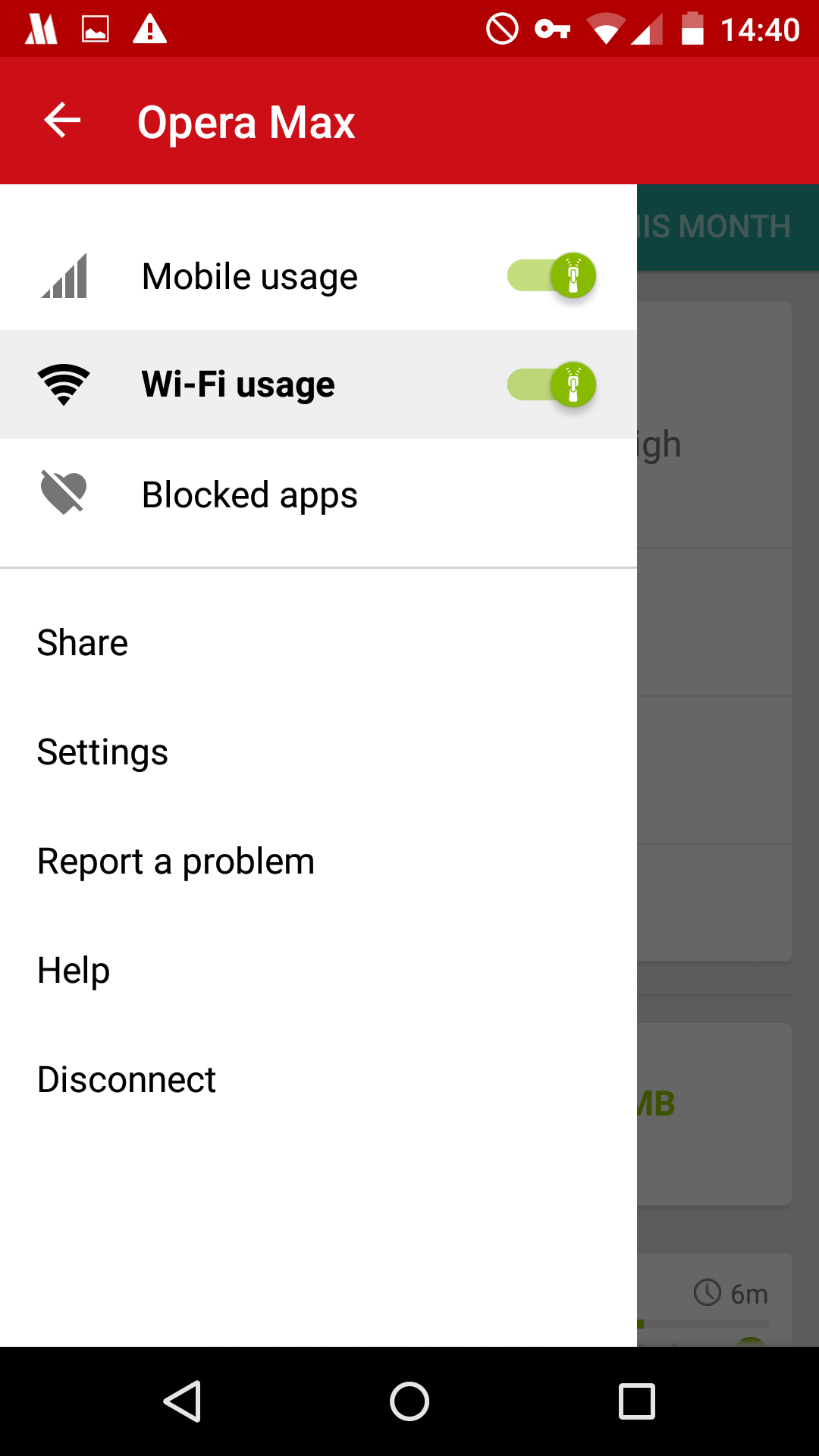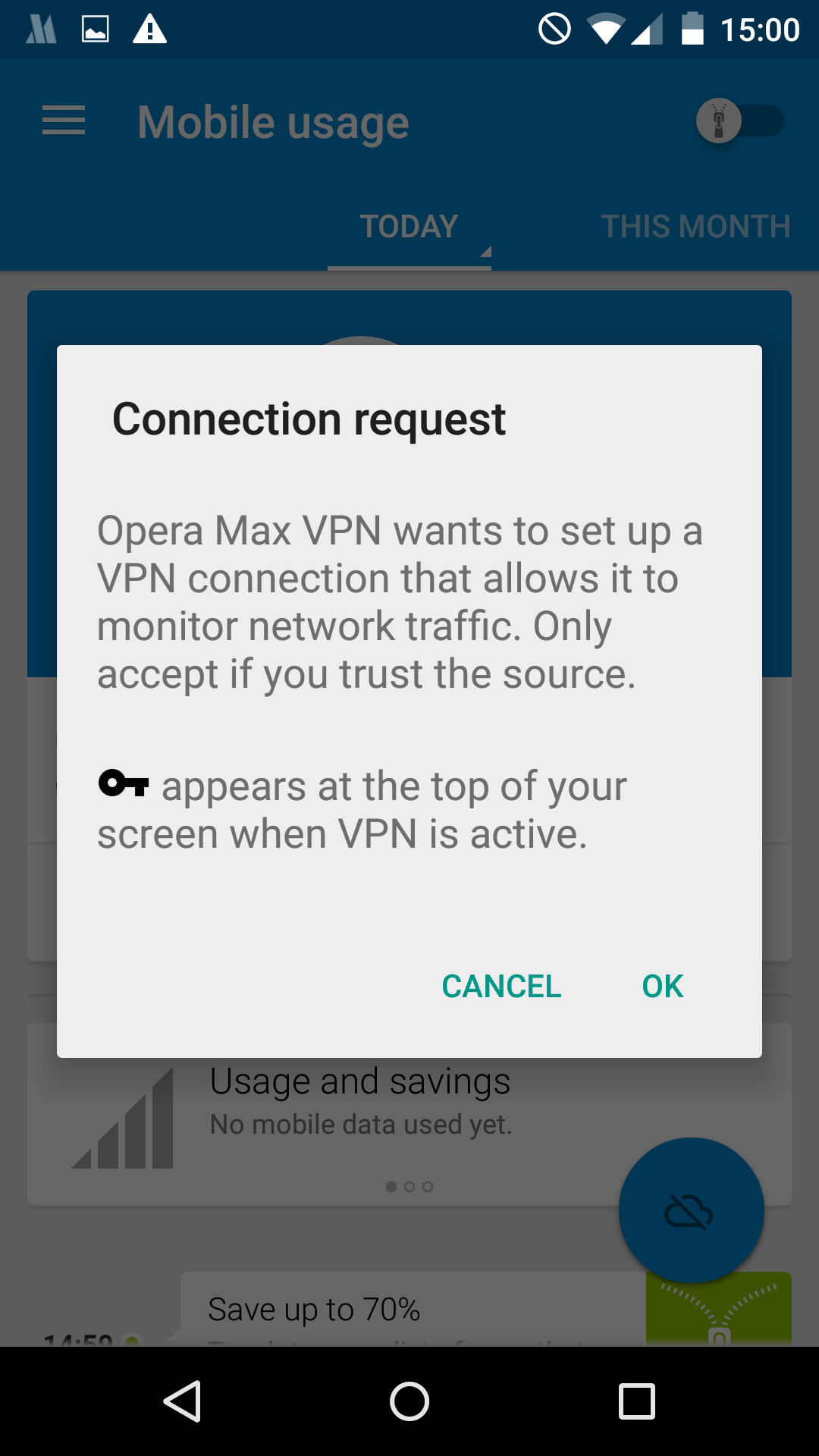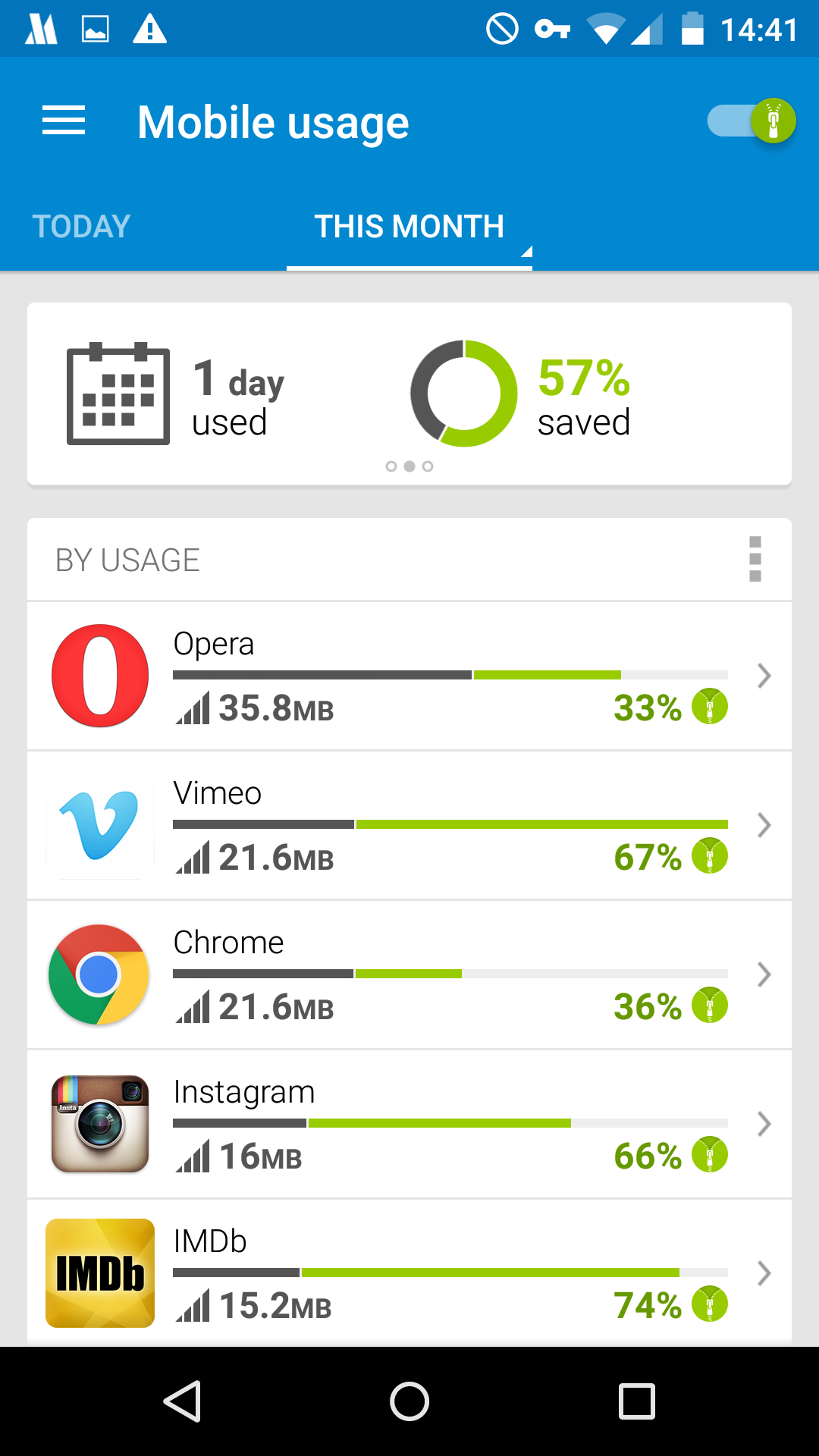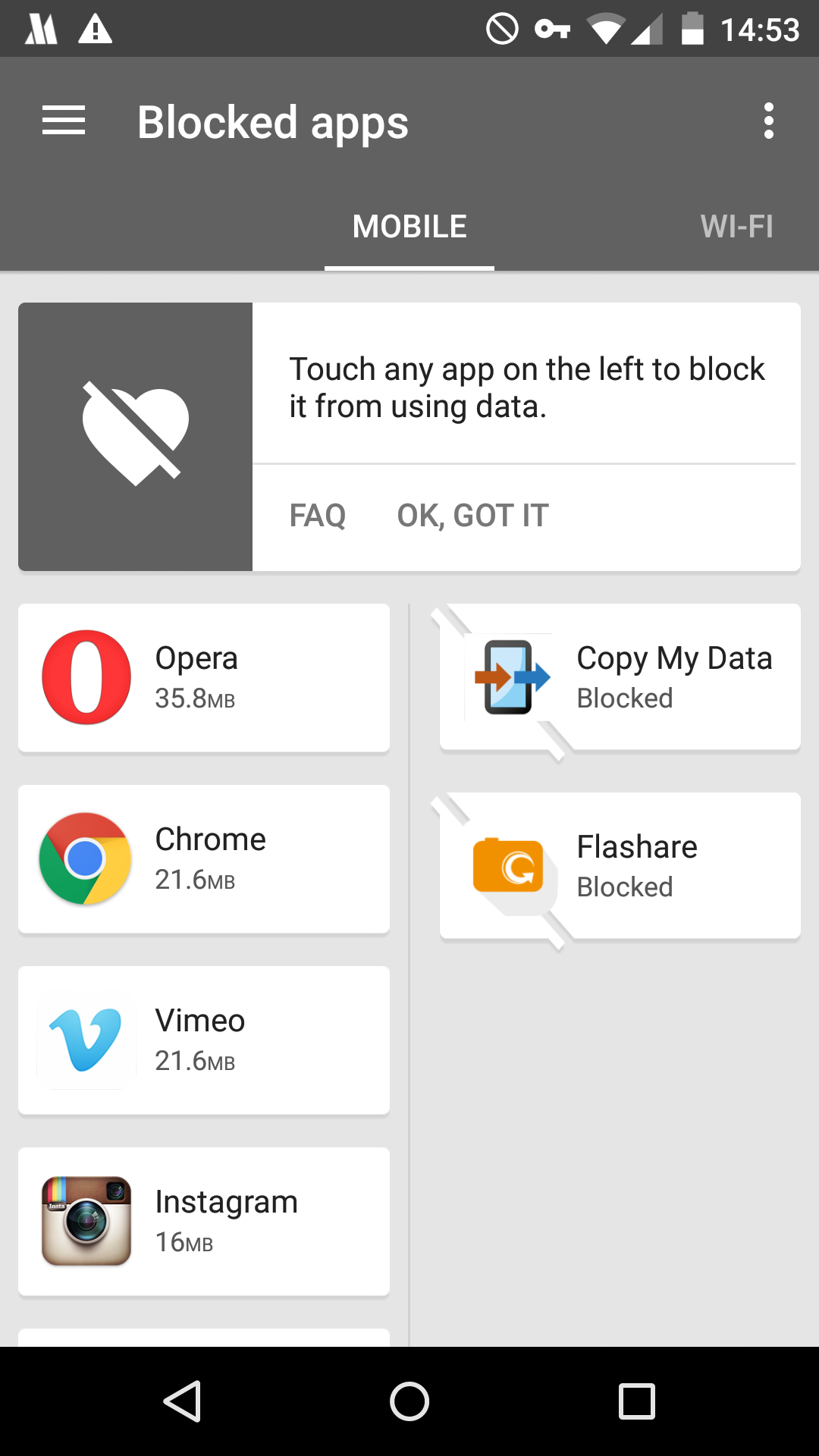Opera Max Data-Saving App Brings Wi-Fi Data Compression In New Version
Early last year, Opera launched its Opera Max data saving app that could compress mobile data up to 50 percent, saving users money and improving their speeds. With the new version, the same will be possible for Wi-Fi connections.
Opera has long been successful with its Opera Mini browser for smartphones, even before Android and iOS existed. The company would compress web pages, including text and images, and save up to 90 percent of data. Opera later also started doing video compression through its servers.
Opera Max is what Opera Mini (or the Turbo Mode of the Opera Mobile app) was, but without the "browser" part. Opera Max acts as a VPN and a proxy server in the background, but it's also a data management application that you can customize on your Android smartphone.
Because it acts as a VPN, it can route not just a single browser's traffic (as Opera Mini does), but the traffic of all installed browsers as well as all of your applications that need an Internet connection. The company said that it can save up to 50 percent of all of the used data this way.
As mentioned, Opera Max is also a data managing application, which shows you the data usage history of all of your applications on both mobile data, and starting with the new version, on Wi-Fi.
One extra benefit of Opera Max is that it can let you block applications from accessing the Internet. This way, for instance, you could always block certain apps from consuming your expensive mobile data.
According to Opera Max's FAQ, the app doesn't interfere with secure HTTPS connections, which means Opera won't be able to see nor compress that traffic. You lose the ability to save some data, but you keep your communications secure (such as banking websites, emails, etc.).
Get Tom's Hardware's best news and in-depth reviews, straight to your inbox.
Opera Max will only compress data that is not encrypted, which can include text, images and video. Those files will not be stored by Opera's servers, according to the company, so presumably they'll be deleted as soon as the compressed versions are passed to your smartphone. App installations are also not included for compression; instead, they pass through Google's encrypted connections (plus, this would break applications).
The company's Opera Max FAQ stated that Instagram and WhatsApp traffic can be compressed, which is interesting because those two services are supposed to use HTTPS encryption as well.
The app can now be installed from the Play Store. The company hasn't said whether Opera Max will be available on other platforms.
Update, 5/26/15, 10:02am PST: According to Opera, not all traffic on Instagram and Whatsapp is encrypted. For instance, on Instagram only the login page and comments are sent via an encrypted channel, but images and videos are sent via the plain-text HTTP, which means Opera Max can compress them.
When asked about what type of data Opera stores on its servers and what gets deleted, Opera responded with the following:
When HTTP data is detected by Opera Max client, the requests are routed to Opera Max cloud.Opera Max servers see the requests and fetch the actual content from origin servers, before the content is sent to the smartphone deviceOnce the actual content is on Opera Max servers it is double checked for what type of file it is: image, webpage, video . Then if it's a type of file that is compressible it is compressed according to users compression settings .Once the content is compressed it is sent down to the smartphone device that originally requested itOpera Max servers only store things like package name, time stamps, IP addresses, original byte size, compressed byte size. Basically the meta data needed to provide a data usage timeline to the user of what they used when .The actual contents and payload is deleted from the servers and not written to disk . Opera servers do not store your images, videos, webpages, or comments.In a nutshell , we treat your data like we would want our own personal data treated. We don't store anything private or personal.
Follow us @tomshardware, on Facebook and on Google+.
Lucian Armasu is a Contributing Writer for Tom's Hardware US. He covers software news and the issues surrounding privacy and security.



